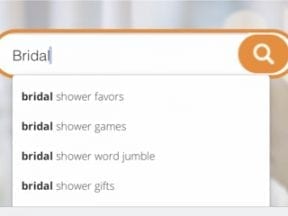
Eighty-five percent of mobile internet users are (i) waiting for something, (ii) on a work break, or (iii) relaxing at home.
Ecommerce store owners often make broad assumptions about their visitors — the settings, surroundings, and the context in which they are visiting.
I spent roughly four years helping build Walmart’s mobile commerce business. Based on that experience and additional research, I’ve learned that roughly 85 percent of mobile-internet use can be narrowed to one of three experiences:
- Waiting for something to occur.
- On a work break.
- Relaxing at home.
For each of those scenarios, it’s important to consider the facets of mobile visitors’ experience. Why are they visiting the site? What problems are they solving? How to capture them in the moment?
Waiting for Something to Occur
Waiting for something to occur is the most likely scenario for mobile visitors.
Why are they visiting the site? An idea has come to them, and they’ve quickly Googled a relevant term. In this scenario, users typically focus for just 5 – 10 minutes. But they are in no mood to execute. They’re simply assembling a mental list of ideas to consider and places to visit.
What problems are they solving? Buying a product is not the problem they are trying to solve. Instead, they are solving what I call the “landscape problem” — creating a list of potential stores and products. Most visitors don’t have a sense of where to shop for specific items. Take Band-Aids, for example. Many consumers would initially consider a pharmacy. But what about heavy-duty gauze bandages? A local pharmacy may or may not sell those. If not, who does? That’s an example of the problem most mobile shoppers are solving.
How to capture them in the moment? Plaster opportunities to connect throughout your mobile site — via email (your best bet) or social media. Give visitors a reason to connect (beyond just a discount). Then gently reconnect within a few days.
On a Work Break
Why are they visiting the site? While on a work break, users are likely visiting your site out of boredom, looking for something interesting.
What problem are they solving? Most visitors at work are looking for inspiration and novelty. Many are returning from tough a conversation or a rough shift. They are looking for experiences that distract or excite them, to follow-up on later. At-work visitors do not have a goal in mind, unlike those waiting in line.
How to capture them in the moment? A simple thing to help at-work users is to create a “Discovery” or “New Ideas” category or section. Refresh it at least quarterly to showcase your company’s best ideas and products.
Relaxing at Home
Why are they visiting the site? Visitors are accessing your site at home because it is likely the quietest part of their day. They may be using a phone as a second screen to a football game in the background or browsing while their kids play video games before bedtime.
What problems are they solving? Mobile visitors at home are looking to buy a product that solves a problem. While the first two scenarios — waiting and on a work break — addressed discovery and boredom, the at-home scenario is executing the sale.
How to capture them in the moment? Start with the basics of making sure your site is fast and responsive. From there, make sure you can capture and update reviews — for products and for your overall site. Prominently displaying all of your simple and efficient payment methods upfront goes a long way to convincing users that they can execute their purchases quickly. Finally, consider allowing bookmarks or saved carts to help visitors evaluate other goods but not forget you.




